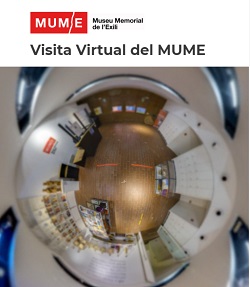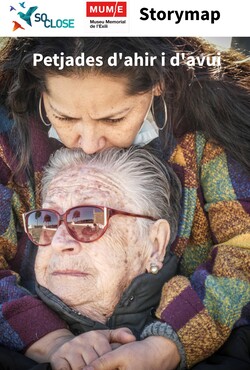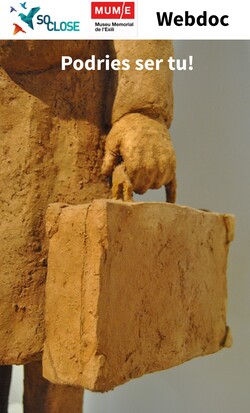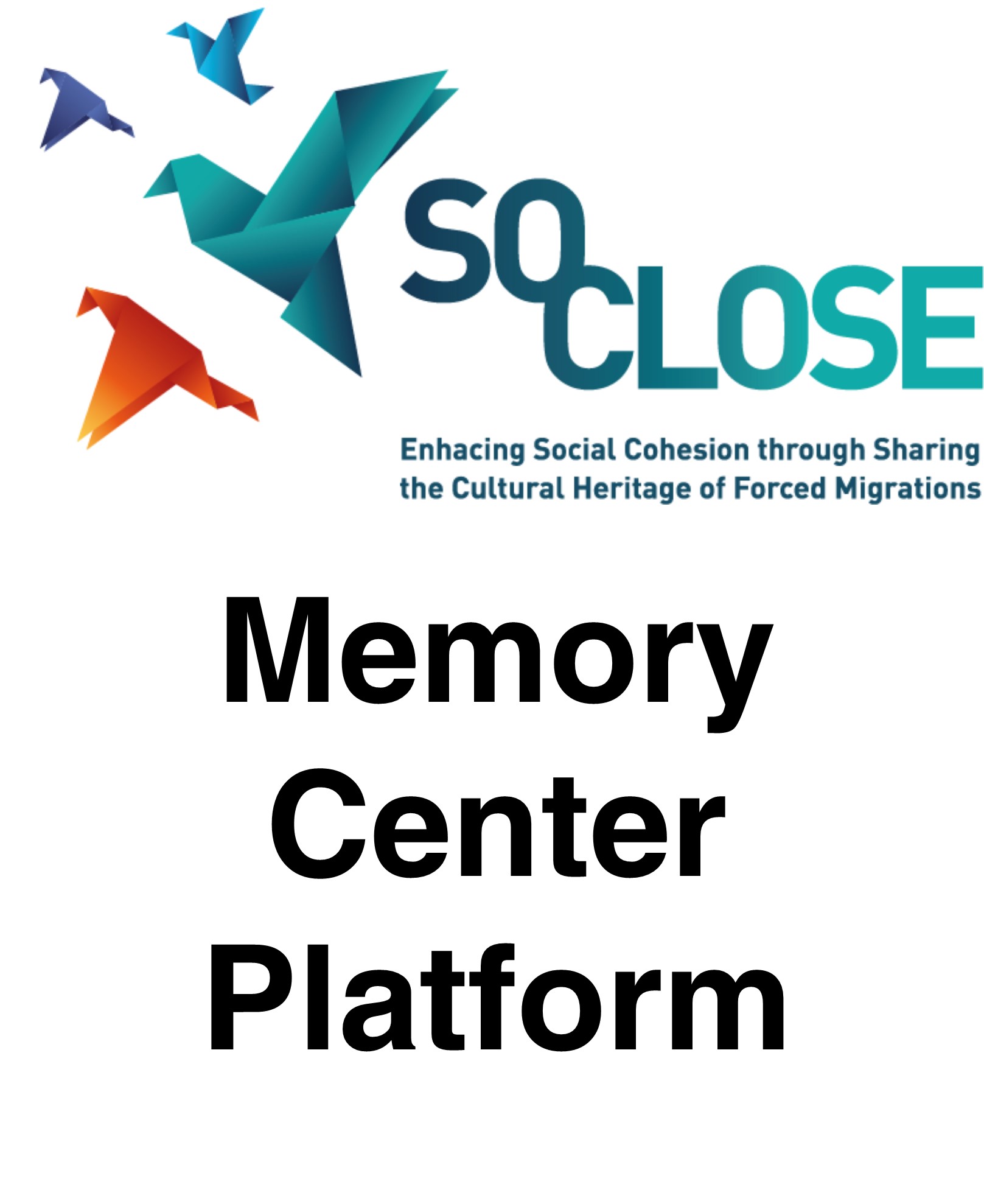Col·loqui Internacional Walter Benjamin 2018: Vies de record i reparació en la sobremodernitat: memòria, postmemòria i història crítica
- Títol:
- Col·loqui Internacional Walter Benjamin 2018: Vies de record i reparació en la sobremodernitat: memòria, postmemòria i història crítica
- Quan:
- Dij, 4. Octubre 2018 - Dis, 6. Octubre 2018
- Categoria:
- Altres Activitats Històric EN
Descripció
Walter Benjamin International Conference 2018
“Ways of remembrance and reparation in hypermodernity: memory, postmemory and critical history”
(Girona-Portbou 4, 5, 6 October)
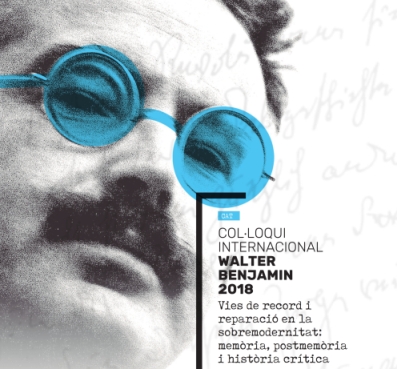
Since the 1980s, the economic, political and cultural transformations have entailed major changes on a global scale in relations of societies and individuals with the legacies received from the immediate past. These are undoubtedly profound changes that are inseparable from our contemporaneity, which is called hypermodernity (M. Augé), postmodernity (J. Habermas/F. Jameson) or even later re-approached as a posthumous stage, an after without after (M. Garcés).
A period in which, while the meaning of historicity seems to evaporate in the impossibility of imagining a future that is not merely a present expanded in time, the recent past – mainly that which takes shape in the remembrance of violent and traumatic episodes – has a notable presence in the daily life of individuals, to the extent of being taken into account in the implementation of public policy programmes.
The omnipresence of the present and the obsession with the past (H. Rousso) coexist in the zeitgeist of this hypermodernity. This phenomenon is clear both in the effects of the fragmentation and decomposition of old certainties and the impression of having reached an end that often encourages societies and individuals to take stock, to come to terms with an unsolved past, full of all kinds of wounds, which is inherited and passed between generations. In this respect, according to some authors (M. Hirsch), it is right to speak of a postmemory that would describe the relationship of the “generation of postmemory” with the personal, collective and cultural trauma of the previous generation. Experiences that would have been transferred so deeply and emotionally that they would seem to constitute the personal memories of later generations. Memories, moreover, which are also mediated and reconstructed through stories and representations external to the physical experience of the direct witness. Thus, these memories, by operating diverse mechanisms of re-production in the process of transmission, always have a vicarious nature like any memorialist and historical reconstruction (B. Sarlo). Whether the use of the prefix post is appropriate to designate the forms of memory, what is clear is that any transmission carries with it ambivalences and problematisations and, therefore, invites questioning and reflection.
The public proliferation of memorialist narratives – produced and understood in the terms of what is conceived as postmemory – opens channels of commitment for the restitution of the victims, the defeated and the resistance fighters, but does it really enable the collective psychological framework of the community of pain to be overcome? Is it desirable that the inclusion of these narratives into critical history operations makes it possible to go beyond the “collective memory” often supported by myth (or propaganda in the worst of cases) and to achieve an unresolved “shared memory”? In other words, the opportunity for an understanding of the traumatic legacies of the immediate past based on objectivity and empirical attitude that, necessarily, must prioritise incomplete “knowledge” over “belief”. Be it truth commissions, peace agreements or public policy programmes on memory, to cite some examples, it is certain that they must look for foundations in the events (D. Rieff) and the affective depth resulting from a balanced combination of memory/postmemory and critical history.
Programme:
Thursday, 4 October
Faculty of Education, Universitat de Girona
6 pm: Institutional opening
6.30 pm: Opening lecture
Transfer of memory as an object of historical analysis
Speaker: Pedro Ruiz Torres (professor of Contemporary History at the Universitat de València)
Introduced and moderated by Maximiliano Fuentes (Walter Benjamin Chair/Universitat de Girona)
7.30 pm: Presentation of the book Kinder für die Aufklarung. Infancias e interrupciones en las emisiones radiofónicas de Walter Benjamin, by Ana Lanfranconi. Winning essay of the 3rd Walter Benjamin Memorial International Prize 2017
Friday, 5 October
Faculty of Education, Universitat de Girona
Morning session
10 am: Culture of memory and political amnesia: failure and proposals
Speaker: Catherine Coquio (professor of Comparative Literature, Université Paris Diderot)
Introduced and moderated by Jordi Guixé (EUROM)
11.30 am: Coffee break
12 noon: “In a moment of a danger. Coloniality and memory in today’s Spain
Speaker: Sara Santamaria (lecturer, Aarhus University, School of Communication and Culture)
Introduced and moderated by Jordi Font (MUME)
1.30 pm: End of the morning session
Afternoon session
4 pm: Panel and discussion
“When the traumatic past becomes present. Typologies and examples of memorial transmissions and narratives, ways of reparation and public policies on memory”
Presentations
-The persistence of the traumatic past in the Spanish state. Shortcomings and difficulties to build a “shared” memory of the Civil War, Franco’s dictatorship and the transition to democracy
Speaker: Montserrat Duch (professor of Contemporary History, Universitat Rovira i Virgili)
-Nazism and Stalinism in European memorial policy
Speaker: Laure Neumayer (lecturer, Centre Européen de Sociologie et de Science Politique (CESSP, Université Paris 1)
-The truth commissions in the Southern Cone and the social construction of the victim of violations of human rights
Speaker: Emilio Crenzel (professor in Sociology, Universidad de Buenos Aires, CONICET researcher)
Introduced and moderated by Antonio Míguez Macho (Universidad de Santiago de Compostela)
7 pm Conference closing session
Saturday, 6 October
8 am Banyuls-sur Mer - Portbou walk as a tribute to Walter Benjamin, with the artistic intervention “Banyuls Portbou_muga 600”, by Nora Ancarola, with Ramon Villegas.
Project produced in collaboration with the Centre de Creació Contemporània Nau Côclea in Camallera.
Departure from Portbou. Please register at Portbou Tourism Office before 30 September 2018. Telephone (0034) 972125161. Bus: 5 euros
Concept and organisation:
WB Chair (Universitat de Girona) and Exile Memorial Museum (MUME)
Co-organisers:
Memorial Democràtic, Institut Català Internacional per la Pau, Generalitat de Catalunya, EUROM / Fundació Solidaritat UB, Universitat Perpignan
With the collaboration of:
Nau Coclea, Ajuntament de Portbou
With the support of:
Diputació de Girona, Universitat de Girona-Social Council, Ajuntament de Girona, Europe for Citizens
The languages of the conference will be those of the speakers with simultaneous translation from French into Catalan and from Catalan and Spanish into French.
Conference registration until 30 September 2018 at Aquesta adreça de correu-e està protegida dels robots de spam.Necessites Javascript habilitat per veure-la. +34 972 556533
(Free attendance)


